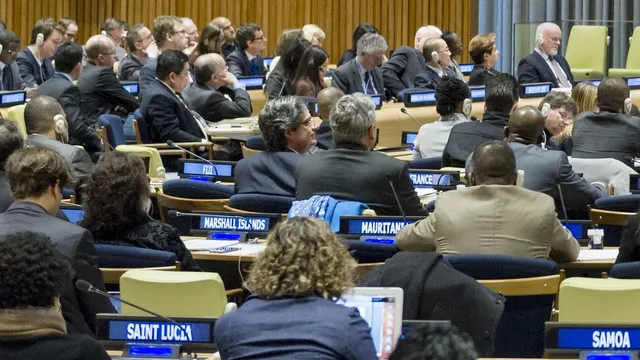The failure to reach a consensus at UNEA underscores the complexity of addressing climate change through technological means.
The regulation of solar radiation management (SRM) techniques, which are intended to mitigate the consequences of climate change, was the subject of a deadlock during this week’s United Nations Environment Assembly (UNEA) in Nairobi.
The divisive issue saw some nations advocating for a complete ban on SRM, while others, led by Switzerland, pushed for the establishment of an expert panel to delve into the potential of this nascent approach.
SRM techniques involve the manipulation of sunlight reaching the Earth’s surface to curb rising temperatures. However, the lack of consensus among nations means that the status quo, where SRM is legal in most countries, will persist. This impasse highlights the complexities surrounding climate intervention strategies.
A proposal put forward by Switzerland aimed to establish the first UN expert group tasked with examining the risks and opportunities associated with SRM. The panel, comprising specialists appointed by governments and representatives of international scientific bodies, sought to provide clarity on the implications of deploying SRM technologies.
However, opposition to solar radiation management was staunch, notably from African nations, who voiced concerns over the environmental risks posed by these techniques. The African Group, in a letter addressed to the chair of the talks, proposed a global governance mechanism to prevent the use of SRM, emphasizing the need for real climate solutions rather than technological interventions with uncertain consequences.
Support for the African Group’s stance came from nations like Colombia, Mexico, Fiji, and Vanuatu, citing concerns about human rights, inclusivity, and the precautionary approach in the proposed expert panel. Despite efforts to welcome geoengineering advocates and address scientific uncertainties through initiatives like the World Climate Research Programme’s Lighthouse Activity, disagreement persisted among key players.
The rejection of Switzerland’s proposal reflects the deep divides within the international community regarding SRM regulation. The reluctance of some nations to subject SRM research to UN oversight echoes similar challenges faced in 2019, further complicating efforts to establish a cohesive approach to climate intervention.
The failure to reach a consensus at UNEA underscores the complexity of addressing climate change through technological means. While acknowledging the need for further research and information sharing, nations remain divided on the path forward.
The discussions, though inconclusive, have sparked a global conversation on the implications of SRM, laying the groundwork for future deliberations on this critical issue.
